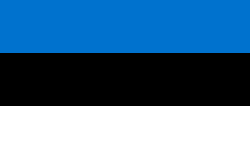This article needs additional citations for verification .(February 2022) |
| Estonia at the 2017 Summer Universiade | |
|---|---|
 | |
| IOC code | EST |
| National federation | Eesti Akadeemiline Spordiliit |
| in Taipei, Taiwan 19 August 2017 – 30 August 2017 | |
| Competitors | 86 (51 men and 35 women) in 11 sports |
| Medals Ranked 53rd |
|
| Summer Universiade appearances (overview) | |
Estonia participated at the 2017 Summer Universiade in Taipei, Taiwan, from 19 to 30 August 2017. [1]